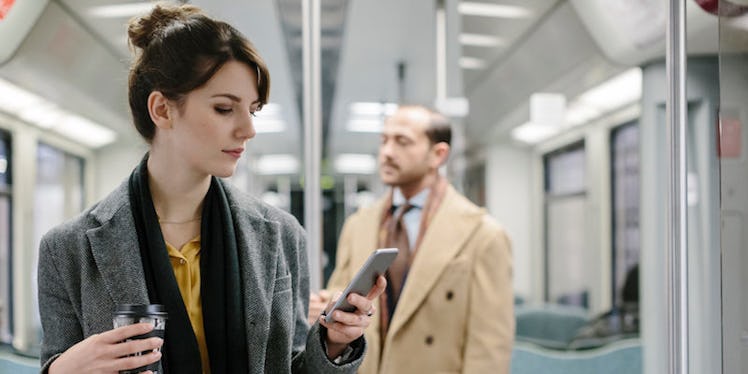
5 Ways To Be Cautious During Terror Alerts Without Altering Your Life
“This is yet another reminder that the world must unite.”
These were Barack Obama's words on the day of the horrific Brussels attacks.
Hopefully, they will resonate deeply with those who oppose his visit to Cuba, in the name of diplomacy and a better tomorrow for my people. I was born on that beautiful island. I'm also a British citizen who's now a permanent resident in the US. I moved here from Dubai, where I lived and worked amongst a friendly and talented community of professional expats.
My life's path is about flight plans from the Caribbean to Europe, to the Middle East, back to North America and every city in between. I don't have the luxury of experiencing social anxiety. I have to travel to all those places.
I figured that being cautious -- especially when sad terms like #BrusselsAttacks and #ISIS are trending on social media on a #TravelTuesday -- is not about being afraid. It's about being informed, social, generous, wise and hopeful.
This practice has served me well over the past 20 years, along with my multilingual bliss. Here are five ways to stay cautious in times of threat in the world:
1. Be informed.
Indulging in negativity isn't my cup of tea. I dislike sad news just as much as my fellow optimists, but in the era of Twitter and Facebook, it makes sense to simply be in the know.
I create Google alerts with safety keywords for the cities I'm traveling to, just as I search for cultural venues, restaurants and fun things to do. I also do this no matter how many times I've already been there.
2. Be social.
Be social in the real world, even with people who may not even have an @ handle to follow you on Twitter.
I learned long ago that the essence of being cautious is simply being friendly. The more people can approach you and vice versa, the higher and better the information flow and a sense of community -- be it at an airport, train station, an event or just at a busy traffic lights.
Letting people know you're friendly lets you know who else is or isn't. But I'm never paranoid about what people are wearing or how they look. I've traveled the world enough to know that perceived enemies are often a product of ignorance.
3. Be generous.
This is a by-product of being social. When I know people's stories, what they're about and what they're going through, it puts what's important into perspective.
I join the #SocialGood conversations on digital communities. I also donate time and/or money for a good cause to support disaster relief efforts from international organizations.
Knowing about these activities is not only inspirational, but also educational and informative. Learn about the world's conflicts, what's behind them and how people react to them.
4. Be wise.
This is not the same as being smart or even intelligent. This is about using common sense for the purpose of everyone's highest good. When we're wise, we're unequivocally cautious. We exercise our sense of responsibility by making better choices. We do this by simply looking around to alert someone who forgot his or her bag at an airport's restaurant or by helping a senior citizen cross the street.
Combining observation with kind gestures is an acquired skill. Fortunately, it's available to all for free at the university of life. All it takes is being ready to experience compassion for the world we live in, where violence seems to be the quickest answer for the uneducated ones.
5. Be hopeful.
Hope is a human condition; losing it is not an option. The moment we confuse being cautious with being afraid, we lose hope. That's letting violence win. We start killing our own lives, in the worst threat known to human intelligence. It's our responsibility to be aware of our world without losing the ability to hope for a better one.
To hope for a world where peace is the true voice of democracy; where land and religion don't collide under the sound of bullets and terror. Be hopeful: It's the only way to live your daily lives.